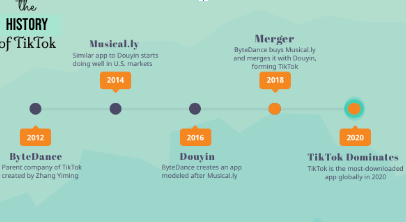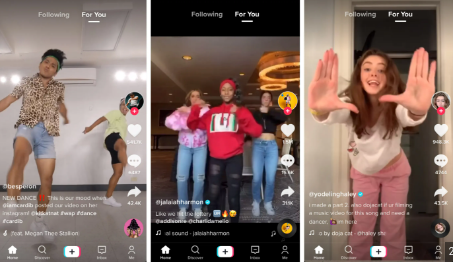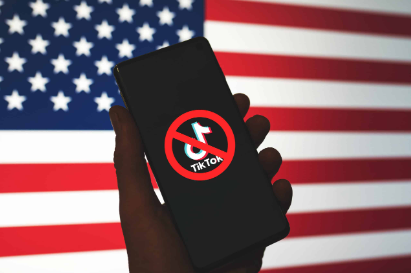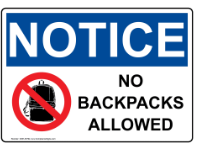You collapse onto your bed after a long day at school, feeling sluggish after trudging through the snow. You check your phone, groaning at the awful snowstorm warnings in the forecast. Right now, the thing you need is a distraction from school and the mind-numbing cold of January. But when you open Tiktok, it doesn’t load. Wait, WHAT??!!! TikTok is blocked?! Tired and exasperated, you try not to scream. Which genius thought it was a good idea to ban one of the world’s most beloved platforms?
Yes, a TikTok ban is a possibility in the future. Due to concerns about TikTok potentially breaching national security, a bill was passed requiring the app to be sold to a government-approved buyer by January 19, 2025, or face a nationwide ban. However, several factors could still influence the outcome. President-elect Donald Trump has repeatedly stated that he will work to prevent TikTok from being banned. A court case about it is going to be heard by the Supreme Court on January 10th, just 9 days before the possible ban. Negotiations between TikTok and prospective buyers could lead to delays, especially if a compromise is reached. But why are lawmakers suddenly so eager to ban TikTok? To answer this question, you have to know TikTok’s story and how it became one of the world’s largest companies in just 4 years.
 Oddly enough, the TikTok we know today started as three different apps released in 2014, 2016, and 2018, a few years before it exploded. It first started as Musical.ly in 2014 and was released in Shanghai by TikTok’s parent company, ByteDance. Then, in 2016, ByteDance changed that into Douyin, which you may know from the popular trend “Douyin Makeup”.
Oddly enough, the TikTok we know today started as three different apps released in 2014, 2016, and 2018, a few years before it exploded. It first started as Musical.ly in 2014 and was released in Shanghai by TikTok’s parent company, ByteDance. Then, in 2016, ByteDance changed that into Douyin, which you may know from the popular trend “Douyin Makeup”.

Even before it became TikTok, the platforms experienced enormous success, gathering 100 million users in China and Thailand within just a year. Then, in 2018, ByteDance acquired Musical.ly and transformed it into TikTok, which became a global sensation. However, 2020 was when TikTok exploded in popularity, as many remember. With teens stuck at home due to the pandemic and online schooling, they suddenly had an abundance of free time. With few things to do, teens turned to Tiktok’s addictive and engaging platform. One of the key features that drew teens in was the For You page, which analyzes and stores user data to recommend personalized videos.
This concern was the main reason President Biden signed the ban bill. Lawmakers were concerned that ByteDance, TikTok’s parent company, could potentially leak U.S. user data to the Chinese government, raising concerns about privacy and surveillance. Given the already tense relationship between the U.S. and China, it’s no surprise lawmakers are wary of TikTok.

However, many TikTok users and influencers are banding together to protest the possible ban. From online campaigns to public demonstrations, people are protesting to make their voices heard. TikTok is also fighting back as much as possible. TikTok’s effort to avoid a ban began in 2023 when the platform released an ad campaign highlighting how it spreads awareness about lesser-known traditions and creates a positive social impact. However, despite those efforts, the discussion of a possible TikTok ban among legislators persisted throughout 2023.
This wouldn’t be the first time TikTok has faced a ban. Countries like France and India have already implemented their own restrictions with the app. But wait, won’t people just move to other platforms like YouTube Shorts or Lemon8 for creating and watching content? Honestly, the answer is probably yes. However, U.S. legislators aren’t concerned about where kids go for content creation; they care about where the companies are based and where user data is going. The government’s primary concern isn’t TikTok’s features or its addictive nature- it’s the fact that TikTok is based in China, and that’s where the data is stored.
Unlike situations where users find workarounds, this isn’t going to be an “unblocked games” sort of situation. TikTok could face a complete ban in the U.S., with app stores not selling it anymore and users not being able to access it in any way, even on the dark web. And if you somehow manage to bypass the law and access TikTok, you may face serious consequences, including being labeled as a potential national security threat or questioned about spying for the Chinese government. So unless you’re willing to move to a different country, it’s safe to say that if this law comes into effect, TikTok will be entirely out of reach. It may be almost time to say goodbye to TikTok- for good.






Asma • Feb 10, 2025 at 8:33 am
I love your thoughts! This made my understanding a whole lot deeper!
Blake • Jan 31, 2025 at 1:41 pm
I never knew all that stuff about TikTok. I am glad it did not get banned.
Aubrey burke • Jan 31, 2025 at 1:34 pm
Thanks for the info! I knew about the ban but this answered all my questions!
Brandon • Jan 31, 2025 at 1:32 pm
I had the app for a long time and was sad it got deleted and I was so glad they came back.
Maddox • Jan 31, 2025 at 1:29 pm
I like this article because I knew about the ban but this helped me learn more about the situation so that’s cool.
Emma • Jan 31, 2025 at 1:28 pm
I am glad that you can still use the app or I would be very bored all the time, this was a great article
Avery King • Jan 31, 2025 at 1:27 pm
This article is interesting I like learning about the things going on with TikTok.
Riley • Jan 31, 2025 at 1:27 pm
I’m so happy TikTok didn’t get banned because I love TikTok so so so so so so so so much
Marley • Jan 31, 2025 at 1:26 pm
I don’t want tiktok to get banned because that is really the only thing I use my phone for.
Jayden Sertich • Jan 31, 2025 at 1:25 pm
Lots of information very cool.
Avery King • Jan 31, 2025 at 1:23 pm
I think this article is interesting learning what’s going on with TikTok.
Mackenzie Leahy • Jan 31, 2025 at 1:21 pm
It was interesting to learn about what is happening to tiktok.
Kylie peters • Jan 31, 2025 at 1:20 pm
I’m happy it didn’t get banned
Malcolm • Jan 31, 2025 at 1:20 pm
I loved getting more in deatil about TikTok’s possible ban.
Eva Medina • Jan 31, 2025 at 10:14 am
I’m so glad it didn’t get banned. But this was very informative, thank you
eli samaniego • Jan 31, 2025 at 10:09 am
What a good article. TikTok is sooooo addicting but good for relaxing at night.
Nishant Gupta • Jan 31, 2025 at 9:57 am
I love the description in this article
Anna • Jan 31, 2025 at 9:53 am
It was so interesting to learn about what is happening to tiktok.
Hari Patel • Jan 31, 2025 at 9:50 am
I disagree with the TikTok banning. Just cause it is from China, it doesn’t make it dangerous.
Johnny • Jan 31, 2025 at 9:49 am
This article is cool and i did not know this stuff before.
Zoya • Jan 31, 2025 at 9:40 am
Every single year they claim TikTok will get banned, but this year it actually got banned for 14 hours. Thank you for explaining this.
Gianna Alongi • Jan 15, 2025 at 2:33 pm
What a wonderful article! So captivating from the second you see the title! Great job!
Naisha Kanchan • Jan 15, 2025 at 1:44 pm
Awesome article Hannah!